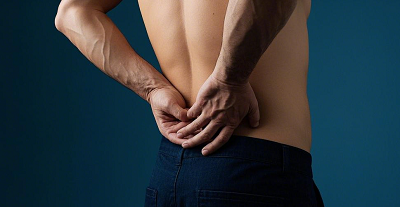Alleviating Anal Pain Caused by Prostatitis: Try These Methods!
Prostatitis is one of the most common urinary tract diseases in men, with symptoms that are complex and varied, including frequent urination, urgency, painful urination, and discomfort in the pelvic region. However, many patients may overlook an important symptom—anal pain caused by prostatitis. This pain not only affects quality of life but can also lead to anxiety and misunderstanding.

The Main Causes of Anal Pain Due to Prostatitis
The reasons for anal pain caused by prostatitis are complex and largely related to the anatomical position of the prostate and the spread of inflammation. The prostate is located below the bladder, adjacent to the rectum. Therefore, when the prostate becomes inflamed, the inflammation can spread to surrounding tissues, including the anal region, through the nervous or lymphatic systems. Here are a few key causes:
1. Nerve Reflexive Pain: The prostate is closely linked to the nerve distribution in the anal region. When the prostate is inflamed, the inflammation can be transmitted to the anus through nerve reflexes, causing pain. This pain is typically dull or sharp and worsens during prolonged sitting or bowel movements.
2. Inflammation Spread: Prostatitis can trigger widespread inflammation in the pelvic region, including the rectum and surrounding soft tissues of the anus. This spreading inflammation leads to congestion and swelling in the anal region, resulting in pain.
3. Muscle Tension: Patients with prostatitis often experience tension and spasms in the pelvic floor muscles. This muscle tension not only affects urination but can also compress the nerves and blood vessels around the anus, leading to pain.
4. Psychological Factors: Chronic prostatitis is often accompanied by anxiety and depression, which can worsen pain perception and create a vicious cycle.
Research shows that about 30% of prostatitis patients experience anal pain. Therefore, understanding these causes is crucial for developing effective treatment plans.
Effective Ways to Relieve Anal Pain Caused by Prostatitis
Relieving anal pain caused by prostatitis requires a comprehensive approach that targets both the prostatitis itself and the local symptoms. Here are some effective methods:
1. Medication Treatment:
Antibiotics: If the prostatitis is caused by a bacterial infection, doctors may prescribe antibiotics. Common drugs include levofloxacin and azithromycin.
Anti-inflammatory Drugs: Non-steroidal anti-inflammatory drugs (NSAIDs) like ibuprofen can help reduce inflammation and pain.
Alpha-Blockers: These medications relax the muscles around the prostate and bladder neck, improving urination and indirectly alleviating anal pain.
In addition, patients may choose herbal medicine, such as the Diuretic and Anti-inflammatory Pill, to relieve anal pain and other symptoms. These pills have heat-clearing, blood-activating, and diuretic properties. Since they are made from pure Chinese medicine ingredients, they won't cause resistance, even with long-term use for chronic patients.
2. Physical Therapy:
Pelvic Floor Muscle Training: Specialized pelvic floor exercises can relieve muscle tension, improve local blood circulation, and reduce pain.
Heat Therapy: Applying heat to the anal region can promote blood flow and relieve muscle spasms and pain.
3. Lifestyle Adjustments:
Avoid Prolonged Sitting: Sitting for long periods can increase pressure on the prostate and anal region. It is recommended to stand up and move around every hour.
Dietary Adjustments: Avoid spicy foods and alcohol, as these can irritate the prostate and anal area, exacerbating symptoms.
4. Psychological Support:
Chronic pain often comes with psychological issues. Psychological counseling or cognitive behavioral therapy (CBT) can help patients cope better with pain.
With these methods, most patients can significantly alleviate the anal pain caused by prostatitis. However, treatment should be individualized, and it is recommended to follow a doctor’s guidance.
Health Prevention Strategies to Avoid Anal Pain from Prostatitis
Preventing prostatitis and its associated anal pain revolves around maintaining prostate and pelvic health. Here are some effective prevention strategies:
1. Maintain Healthy Habits:
Regular Exercise: Moderate aerobic activities like walking or swimming can improve pelvic blood circulation and boost immunity.
Avoid Prolonged Sitting: Sitting for long periods increases pressure on the prostate and anal region. It is advised to use ergonomically designed chairs and move regularly.
2. Healthy Diet:
Drink Plenty of Water: Adequate water intake helps dilute urine and reduces irritation to the prostate.
Eat Fiber-Rich Foods: Foods like vegetables, fruits, and whole grains can prevent constipation, reducing pressure on the anal area.
3. Regular Check-ups:
Men should undergo regular prostate exams, especially those over 40. Early detection and treatment of prostate issues can effectively prevent complications.
4. Avoid Excessive Sexual Activity:
Excessive sexual activity can lead to prostate congestion, increasing the risk of inflammation. Maintaining a moderate frequency of sexual activity benefits prostate health.
5. Manage Stress:
Long-term stress can weaken the immune system and increase the risk of prostatitis. Managing stress through activities like meditation or yoga can help prevent the disease.
By following these strategies, the incidence of prostatitis and its associated anal pain can be significantly reduced.
Conclusion
While anal pain caused by prostatitis can be uncomfortable, with scientific treatment and preventive strategies, most patients can effectively alleviate symptoms and improve their quality of life. Early detection, comprehensive treatment, and a healthy lifestyle are key. If you or someone you know is experiencing similar symptoms, seek medical attention promptly to avoid delayed treatment. A healthy prostate starts with understanding!
Recommended Readings:
Why Do Some Prostatitis Patients Have Foamy Urine?
Sedentary Work and Prostate Health: How to Improve Sleep Quality and Protect Your Prostate
Can Candida Cause Prostatitis?



